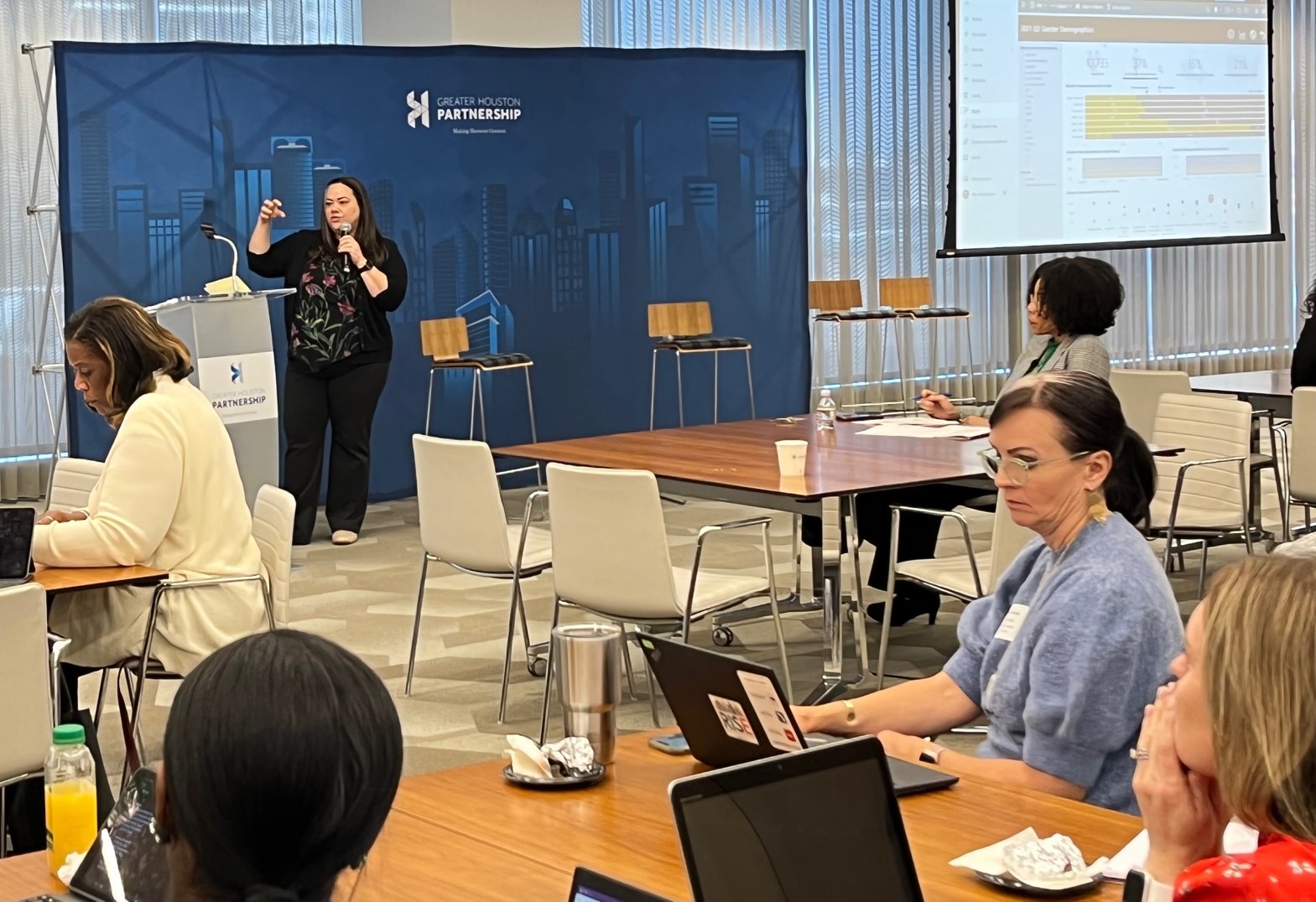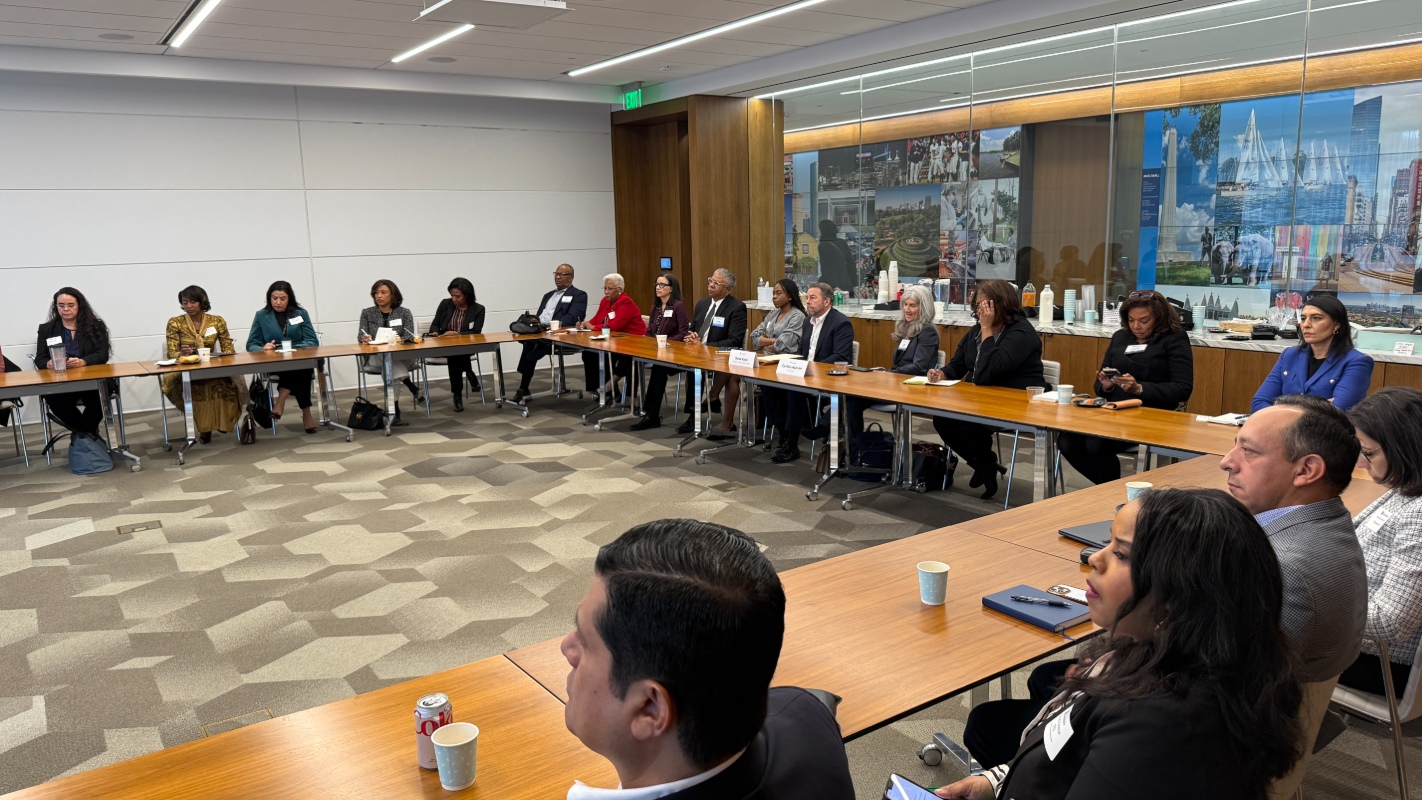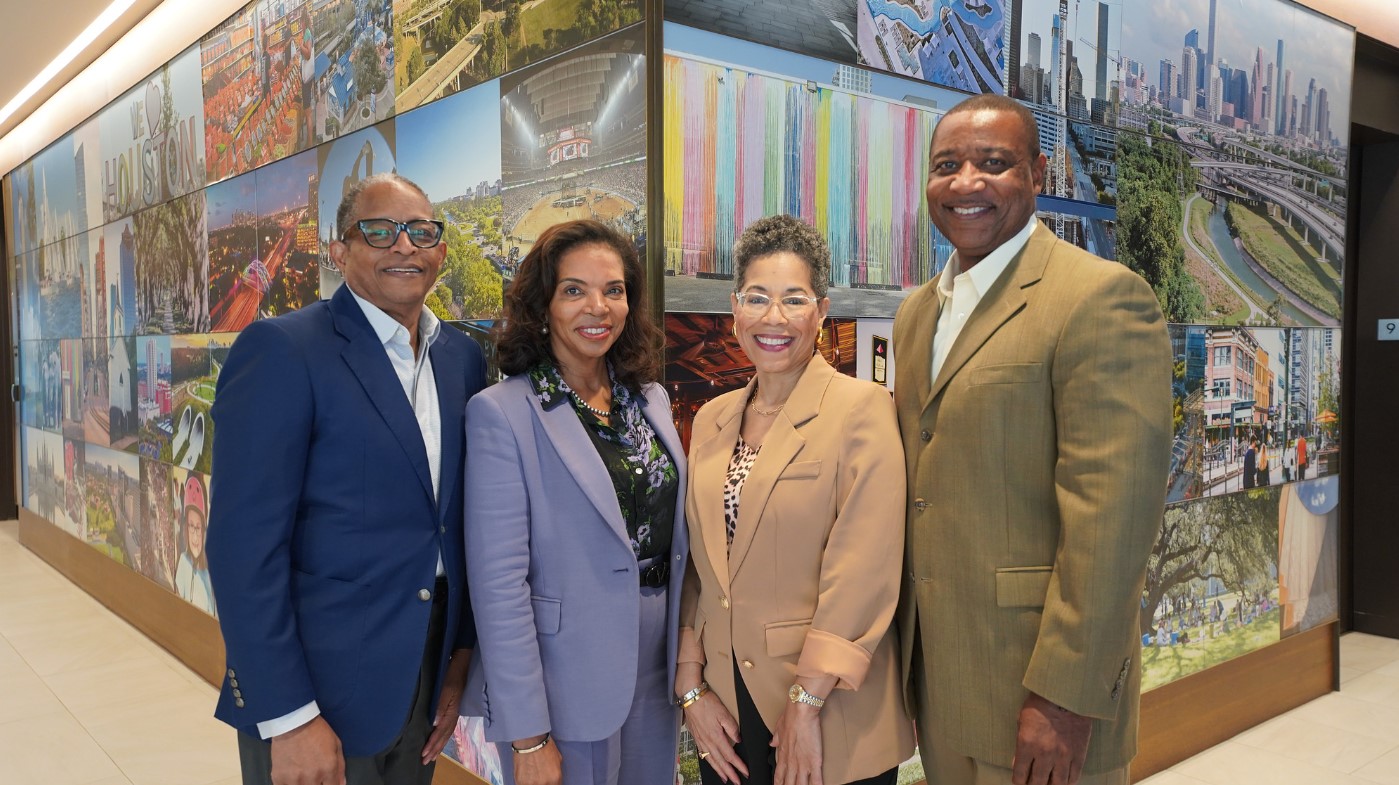One Houston Together: How Two Organizations are Building a Sustainable Process for Hiring Diversity
Published Mar 30, 2022 by A.J. Mistretta
For many companies attempting to hire and promote diverse talent today, practical pathways to action are sometimes elusive. The Partnership’s One Houston Together Talent Roundtable gathers the region’s leading employers to share best practices and tools for advancing talent diversity in deliberate and measurable ways.
In a roundtable discussion held earlier this month, representatives from Enbridge and Lone Star College shared what their organizations are doing to continue to diversify talent across multiple factors of identity- race, gender, veteran status, LGBTQ+ and more.
Carlecia Wright, Chief Diversity Officer for Lone Star College talked about the need for data-informed decision making that includes an in-depth look at departmental hiring trends. She described how the data-driven approach is being employed across all 7 campuses for Lone Star – the region’s largest higher ed institution serving more than 85,000.
Such data assists in bias reduction, helps create demographic profiles and enables hiring managers to study profiles for each position before hiring to help increase racial diversity. Analytics, Wright said, provide baseline insight around hiring diversity and helps the college set benchmarks for advancing it. She also shared how the college has implemented accountability with the college presidents and that this is a priority for the Chancellor. Their collective leadership is key to progress.
Amanda Scott, Specialist in DEI and Talent Acquisition Strategy at Enbridge, discussed how the midstream energy company developed a firmwide model for DEI maturity and set benchmarks to advance progress.
The journey included focus groups, an inclusion survey, evaluations and strategic action. Enbridge purchased some data and used other data from the Census to help determine diversity goals. Conversation trackers were also deployed to require at least two conversations per team annually.
Today, Enbridge has a comprehensive look at its workforce diversity across offices and divisions around the world. The live data analytics tool is available to everyone in the company as well as Enbridge’s vendors. The dashboard tracks new hire demographics, promotions, turnover and other factors affecting workforce diversity. The company also conducts a pay equity analysis annually.
Enbridge’s work in this arena recently won the company a coveted Catalyst Award, recognizing multinational companies considered best-in-class in DEI initiatives. Watch a short video from Enbridge employees and leaders on the importance of DEI.
Other key takeaways from the Roundtable discussion:
- Create data visualization tools to make metrics accessible
- Consider including age when creating diversity profiles
- Continue to keep customers and clients involved with organization’s DEI progress
- Measure progress by continuing to participate in Partnership’s Equity & Inclusion Assessment and encouraging other organizations to do so
- Increase storytelling around best practices to help others in their journey
- Build off the work of one another and identify partners within the Talent Roundtable to continue discussion offline
- Work to develop sustainable pipelines to leadership that will endure
Learn about the Partnership’s One Houston Together effort, the results of the region’s Diversity & Inclusion assessment and more here.
Elizabeth Balderrama contributed to this post.
 The Houston Report
The Houston Report




















